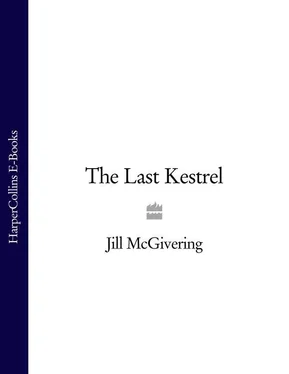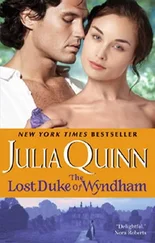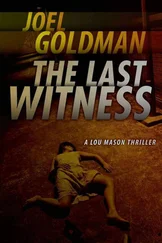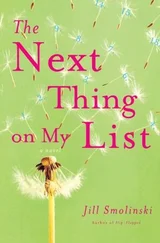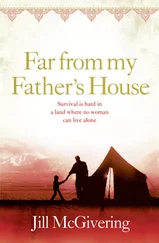But at this time of year, in the long stifling hope of rain, it was baked hard, a sunken square of land that they struggled to keep moist. The first crop of the year was long since harvested. The second crop–corn for themselves and poppy to sell to Abdul’s brother, Karam–was growing higher, day by day. She sniffed the air, tasting the health of the plants. The first harvest had been average. This second one held more promise.
She settled on a stone and rocked herself. Somewhere out in the desert, wild dogs were calling to each other. A low breeze was blowing in from the plains. She wrapped her moist scarf across her face, shielding her eyes from the lightly swirling sand.
Then she heard it. A tiny human explosion: a sneeze. She lowered the rim of her scarf. Someone was out there, hiding in the corn. She listened, her senses raw. After some time, a barely audible rustle, as if someone, deep in the cornfield, were shifting their weight.
She crept forward, one slow step at a time, feeling out the ground with each foot. She made her way, bent double, down the side of the field, balancing on the thin strip between the last planted row and the ditch. Every few paces, she stopped and listened.
Finally she heard breathing. Short, shallow breaths. She turned towards the centre of the corn and reached forward to ease apart the corn stems, as if she were parting a curtain. She let out a sudden cry. Crouched in front of her, looking right into her eyes, so close she could reach out and touch him, was a young man, a stranger, his head wrapped in the printed cotton scarf of the jihadi fighter. A brass talisman gleamed on a leather thong round his neck. It was in the shape of a bird, its wings spread and claws outstretched. The young man frowned. The thin moonlight caught the metal casing of the gun he held across his body, its muzzle a matter of inches from her bending head.
The three young men perched on the perimeter wall and lit up fat cigarettes. Hasina’s son, Aref, sat beside them, the only one without a gun propped against his legs. Hasina recognized the acrid smell of fresh hashish. Aref smoked too, when the cigarette was offered, but self-consciously. They were teasing him, laughing and calling him ‘little brother’. Such arrogance. Hasina wanted to slap their faces. They thought they were so clever, these boys with guns. They were nothing more than troublemakers, with their bullets and bombs. Whatever they called themselves, Leftists, jihadis, mujahideen. She’d seen so much death already.
Moving quietly, she poured water into cups and offered it to them. They reeked of stale sweat. She tried not to let her disapproval show. Even the poorest villager showed respect to his body by keeping clean.
As the young men smoked, she pulled Aref away and took him to the back of the house. His eyes were sullen.
‘Who are these boys?’ she said. ‘Why have you brought them to our home? Have you no respect?’
He scowled. ‘They are my brothers.’
‘Brothers?’ She stared at him. ‘How do you know them?’
Aref turned his eyes to the earth. ‘Karam Uncle,’ he said.
Hasina blinked. Karam? He had dark contacts, she knew that. Selling poppy to them had made his fortune. But fighters, like these?
‘You’ve met them before?’
‘Many times.’ He gave a thin smile. ‘I have trained with them.’ He lifted his hands as if he were aiming a gun at her. ‘You never knew, did you?’
What a child, she thought. She saw triumph in his eyes. What would Abdul say? Those times Aref had disappeared for two, three days on Karam’s business. Was it for this? She wanted to take hold of his shoulders and shake him hard. Instead she reached for his hand. ‘Aref, these are not decent boys.’
‘Not decent?’ He swatted her away. ‘These men are fighting. Defending our land. Not decent?’
Hasina sighed. Beside them the goats shuffled and pressed, hot and pungent, against her. She thought of that face, so close to hers in the corn. He looked little more than a boy, but his eyes, hard and knowing, were old.
‘Where are they from?’
Aref gestured vaguely. ‘Beyond Nayullah.’
‘They should go home, Aref. Back to their families.’
Her son was looking at her the way some men in the village looked at their wives, as if women had no more brains than a goat.
‘They’re fighters. Not farmers.’ He spat out the word with disdain. ‘They’re fighting for Allah.’
Behind them, one of the young men let out a barely stifled laugh. She froze, frightened the noise would wake Abdul.
‘Bring them to the back,’ she said. She untied the goats and led them out into the clearing. ‘I’ll fetch food.’
She sat in the shadow of the wall and watched them. They bristled with tense excitement as they whispered and sniggered. They didn’t attempt to wash. They kicked the area clean of goat droppings and dirty straw and half sat, half lay on the mud. Once they’d pulled off their boots, they fell on the food she’d given them. Their long-nosed guns lay at their sides. Aref sat with his arms curled tightly round his knees, a look of devotion on his face.
What lives were these boys leading, fleeing across the desert as the foreigners advanced? The boys were settling to sleep now, their arms round their guns as if they were wives. Their faces had relaxed. Sleep was turning them to boys again. She imagined their mothers, lying in the darkness in small mud-brick houses like their own. She bowed her head and tried to pray for them, to beg Allah to give them His guidance and keep them safe from harm. But all she could see when she closed her eyes was the eager face of her own son, loyal as a dog at their feet.
When she woke at first light, the young men had disappeared. So had Aref. He must be guiding them off the village land. An hour or two, then he’d be back. She waited, listening for his step every moment as she swept and cooked. Morning passed. When she took food to Abdul in the fields, she stayed with him as he ate. Should she tell him? She read the exhaustion in his face and held her tongue. By mid-afternoon, she was desperate. She straightened her skirts and walked through the village to the grand compound of her brother-in-law, Karam.
Her sister-in-law, Palwasha, was lying on her side on a crimson carpet. It was decorated with geometric designs in black, yellow and cream. The colours were strong and bright. Abdul’s wealthy brother had sent his first wife back to her family for failing to bear children. Now he spoiled his second wife with costly gifts. Hasina pursed her lips. Before this, only the mosque had been decked with carpets.
Palwasha was pulling at her elder daughter’s hair, tugging it into tight plaits. Sima was grimacing. Palwasha’s wrists tinkled with bracelets as she flexed her arms.
‘I should never have come to live here,’ Palwasha said as soon as she saw Hasina. Her eyes, heavily circled with kohl, rolled dramatically. ‘I told Karam I would simply die. I’m a town girl. People should remember that.’ She looked sullenly at Hasina. ‘Why am I telling you?’ she said. ‘You never understand a thing.’
Hasina settled herself on the compact mud, some distance from the edge of the carpet. Palwasha talked such nonsense. The village women said her family had married her off to Karam because they were in debt.
‘Of course, sister-in-law,’ Hasina said. ‘Life here must seem very harsh to you.’
Sima squirmed, struggling to break free. Palwasha slapped her leg. Sima’s breathing juddered as she tried not to cry.
‘Primitive!’ Palwasha muttered. ‘You’re so right.’
She finished plaiting and pushed Sima away. The girl crept out into the compound to join her young brother, Yousaf, and sister, Nadira, chasing chickens and setting them flapping through the straw.
Читать дальше
